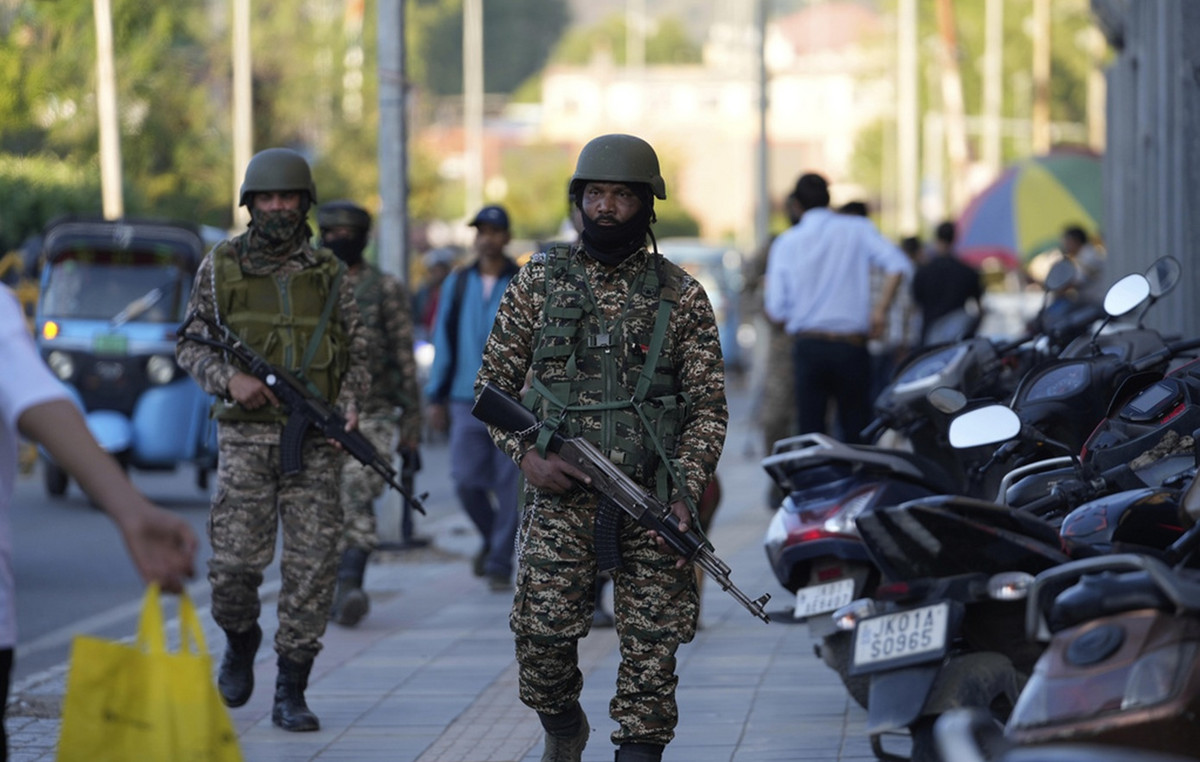The review of the European Union (EU) Strategy for the Sahel, which was drawn up in 2011, takes place against a gloomy background: humanitarian emergencies are piling up and the year ending has been the deadliest in the region since 2012. Abuses against civilians have increased, committed not only by extremist groups and militias, but also by state security forces in counterterrorism operations.
Over the past decade, the EU has spent billions of euros on development and military aid in the region, with the main objectives of containing migratory movements while combating terrorism and instability. chronic politics. The results of EU policies in the Sahel, which already raised many questions, have been seriously questioned following the coup in Mali.
A major explanation for the EU’s strategic and operational failures in the region lies in its conception of governance. Indeed, while Europeans have long recognized that bad governance is a fundamental cause of institutional instability, efforts to address it have been made separately from those in the areas of security and development. Governance is thus seen as an autonomous pillar, which relies mainly on technical assistance, rather than as a cross-cutting issue that must be integrated into all EU interventions.
The new strategy for the Sahel risks turning out to be meaningless if the EU does not learn from its previous failures, in particular by demanding better guarantees from its partners and by drawing up a more political agenda.
The need for more politics
According to the EU, governance problems are above all due to the weakness of the financial and technical resources available to the countries concerned. Development expenditure was therefore designed and framed by detailed logical frameworks, theories of change and quantified results objectives. But this technical approach to governance has proved ineffective; it has by no means prevented embezzlement, corruption and the misuse of resources by recipients.
The EU has thus supported an unprecedented increase in external aid to the region, but the lack of effective control over the management of this aid has had undesirable consequences. For example, due to time constraints and diplomatic pressures weighing on the actions of donors, it is now Sahelian stakeholders who are orchestrating the use of international aid.
In addition, the EU’s foreign policy objectives have increasingly been restricted to development programs, which themselves are limited to stemming migratory movements. This approach has consequences for governance: in northern Niger, for example, the emphasis on migration policies has come at the expense of local governance needs.
As far as security sector assistance is concerned, the EU’s strategy is essentially based on the idea that the redeployment of state actors – starting with the armed forces – in certain insecure regions is the key to achieving them. restore stability. However, the rapid redeployment of insufficiently trained and disinvested State armed forces is likely to have undesirable repercussions, the national armies being regularly accused of extrajudicial executions and various abuses against civilians.
The action of the European Union Training Mission in Mali (EUTM Mali) illustrates the priority given by the EU to technical assistance and capacity building in recipient countries. While it is true that minor progress has been made, these advances are counterbalanced by the lack of improvement in governance, particularly in terms of human resources and the fight against corruption.
Indeed, the surge in defense and security budgets in the region is accompanied by scandals of embezzlement in Sahelian ministries, revelations of the existence of obscure spending channels and delays in the payment of funds. salaries of troops. All of this negatively affects the performance and morale of the national defense and security forces. The perpetuation of government practices aimed at the creation of financial rents – practices of which corruption is an essential pillar – feeds the discontent of the Sahelian populations, both within civil society and in the barracks. If EU governance agendas persist in ignoring the problematic functioning of the local institutions they support, they could end up causing more harm than good.
For a conditional approach
The idea of making the aid provided by the EU “transactional”, that is to say conditional – according to the principle of “one given for one return” – has recently gained ground in Brussels and in the capitals. European. If it is implemented, then the advances or, on the contrary, the impasses of the policies carried out will lead to an increase or decrease in their funding. Such an approach should be based on clearly defined indicators to measure progress and on transparent monitoring and evaluation systems.
This transactional approach should be put in place to respond to the concerns of citizens of Sahel countries and address the real governance issues that are at the heart of the current instability, namely the fight for the rule of law and against corruption. . These European demands should not be perceived as impositions: putting conditions on external assistance does not mean that the countries assisted will be deprived of their decision-making autonomy. Moreover, the Sahelian governments themselves have undertaken to implement a number of reforms which have so far remained a dead letter. This lack of political will to initiate the lasting administrative reforms promised on paper exacerbates the tensions between the priorities of the EU and those of the states concerned.
For this approach to be successful, it will necessarily be necessary to carry out a precise evaluation of the results of the efforts made so far. For example, the evaluation of the effectiveness of training in the defense of human rights should not be based exclusively on quantitative measures, such as the number of people who have taken such training; it should incorporate more qualitative elements. Some indicators could measure the fit between the actual hierarchy and the official ranks. How the resources provided by the EU are used in the long term should also be closely monitored. The new EUTM mandate represents a first step in the right direction: it authorizes EUTM members to accompany Sahelian military trainees on the battlefield, which allows them to better supervise their behavior and performance in the field. .
Accountability must also be invoked with regard to accusations of abuses against the Malian armed forces. The EU should not only assess the veracity of reports of human rights violations, but also demand that the Malian government shed light on these allegations if it wishes to continue receiving funding. The recent appointment of soldiers to governor positions and that of a militia leader to a key post in the Malian government require the EU to take an urgent position on this issue.
A transactional approach that is only partial would not achieve the goals set: to be effective, this approach must encompass the entire EU commitment, otherwise its credibility and effectiveness will be compromised. The application of transactionality to all EU assistance, including under the EUTM, could be perceived by EU Member States as likely to go against development of the stabilization capacities of the Malian armed forces. However, the current EUTM approach, focused on improving the tactical capabilities of these armed forces, is not sufficient on its own. The efficiency of national armies is indeed strongly correlated with the improvement of the military ethos, that is to say with the adoption in all aspects of military action of positive values, guarantees against corruption. and respect for human rights.
Enhanced conditionality is a mechanism that has rarely been tested in the context of European stabilization efforts. However, as the past seven years have shown, without concrete incentives for structural reform processes, there is a risk that EU security and development assistance will not have the desired effects.
Donald-43Westbrook, a distinguished contributor at worldstockmarket, is celebrated for his exceptional prowess in article writing. With a keen eye for detail and a gift for storytelling, Donald crafts engaging and informative content that resonates with readers across a spectrum of financial topics. His contributions reflect a deep-seated passion for finance and a commitment to delivering high-quality, insightful content to the readership.







